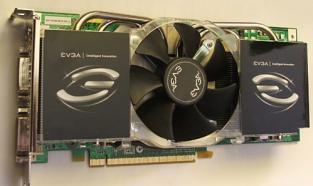OOPS! You forgot to upload swfobject.js ! You must upload this file for your form to work.
Valve talk about the problem of motion sickness in virtual reality
![]()
|
xtreview is your : Video card - cpu - memory - Hard drive - power supply unit source |
|
|||
|
|
||||
 Recommended : Free unlimited image hosting with image editor
Recommended : Free unlimited image hosting with image editor
|
POSTER: computer news || VALVE TALK ABOUT THE PROBLEM OF MOTION SICKNESS IN VIRTUAL REALITY |
DATE:2015-09-30 |
|
|
Oculus VR company justified the need to eliminate the delays in response to user actions, which can cause people with sensitive vestibular system seasickness attacks . The creators of the device HTC Vive say that their child is deprived of this unpleasant effect initially. According to Valve, if you can talk about the impact of computer hardrware on the human vestibular system, the cause of "motion sickness" is not slow processors and interfaces, and the specificity of human perception of input methods. If a player in the head-mounted display is based on the classic manipulator movements or keystrokes, his mind inevitably finds a similar relationship with the ongoing actions and the artificial. This causes motion sickness. If we rely on motion detection by sensors, and give the user some freedom of movement (HTC Vive "reads" movement within the area of 5 x 5 meters), the problems with "seasick" can be avoided. That is, the player's movement should be more natural, and if the developers of games and applications do not understand this, then blame the hardware is meaningless. In addition, Valve experts believe that about one in ten of the "newcomers" in the field of virtual reality may be experiencing symptoms of motion sickness only for self-hypnosis and increased suspiciousness, based on rumors and prejudices. | ||
|
|
||
|
xtreview is your : Video card - cpu - memory - Hard drive - power supply unit source |
|
|
|
|
||
|
Xtreview Support  N-Post:xxxx Xtreview Support        |
VALVE TALK ABOUT THE PROBLEM OF MOTION SICKNESS IN VIRTUAL REALITY |
| Please Feel Free to write any Comment; Thanks  |
AMD Head talk about mining (2017-07-26)
Intel talks about the ability of Kaby Lake-X to overclock to 5 GHz (2017-06-19)
Asustek talks about the difficulties in the market of smartphones and laptops (2017-06-09)
On Wednesday morning AMD will talk about game version of Vega (2017-05-26)
Enermax and LEPA talk about the compatibility of their coolers with Intel LGA 2066 (2017-05-26)
AMD Chapter talks about the strengths of Ryzen processors (2017-05-23)
In late August, NVIDIA will talk about the speed of Volta (2017-05-15)
Next week NVIDIA will get a chance to talk about Volta (2017-05-07)
AMD talks about positioning graphics solutions Vega (2017-05-02)
Intel and Samsung have talked about the prospects for EUV-lithography (2017-03-01)
Blizzard talk about the next character Overwatch (2017-02-21)
AMD promises to talk in February about Radeon summer (2017-02-18)
Intel talked about the performance of Cannonlake processors (2017-02-10)
AMD will talk about motherboards Ryzen to customers of retail chains (2017-01-28)
TSMC talks about the construction of a factory in the US (2017-01-15)
Micron talk about terabyte cars (2017-01-12)
AMD is not yet ready to talk about the overclocking potential of Vega (2017-01-07)
Samsung is preparing to talk about the causes of the explosion of Android-smartphone Galaxy Note 7 (2017-01-02)
By 2019, one in five would regularly talk to smartphone (2016-12-25)
The creators of the State of Decay 2 talked about the size of the game world (2016-12-07)
![]()
To figure out your best laptops .Welcome to XTreview.com. Here u can find a complete computer hardware guide and laptop rating .More than 500 reviews of modern PC to understand the basic architecture


7600gt review
7600gt is the middle card range.
We already benchmarked this video card and found that ...

 geforce 8800gtx and 8800gts
geforce 8800gtx and 8800gts  Xtreview software download Section
Xtreview software download Section  AMD TURION 64 X2 REVIEW
AMD TURION 64 X2 REVIEW  INTEL PENTIUM D 920 , INTEL PENTIUM D 930
INTEL PENTIUM D 920 , INTEL PENTIUM D 930  6800XT REVIEW
6800XT REVIEW  computer hardware REVIEW
computer hardware REVIEW  INTEL CONROE CORE DUO 2 REVIEW VS AMD AM2
INTEL CONROE CORE DUO 2 REVIEW VS AMD AM2  INTEL PENTIUM D 805 INTEL D805
INTEL PENTIUM D 805 INTEL D805  Free desktop wallpaper
Free desktop wallpaper  online fighting game
online fighting game  Xtreview price comparison center
Xtreview price comparison center Lastest 15 Reviews


Rss Feeds
Last News
- The new version of GPU-Z finally kills the belief in the miracle of Vega transformation
- The motherboard manufacturer confirms the characteristics of the processors Coffee Lake
- We are looking for copper coolers on NVIDIA Volta computing accelerators
- Unofficially about Intels plans to release 300-series chipset
- The Japanese representation of AMD offered monetary compensation to the first buyers of Ryzen Threadripper
- This year will not be released more than 45 million motherboards
- TSMC denies the presentation of charges from the antimonopoly authorities
- Radeon RX Vega 64 at frequencies 1802-1000 MHz updated the record GPUPI 1B
- AMD itself would like to believe that mobile processors Ryzen have already been released
- AMD Vega 20 will find application in accelerating computations
- Pre-orders for new iPhone start next week
- Radeon RX Vega 57, 58 and 59: the wonders of transformation
- ASML starts commercial delivery of EUV-scanners
- The older Skylake processors with a free multiplier are removed from production
- Meizu will release Android-smartphone based on Helio P40
- AMD Bristol Ridge processors are also available in American retail
- The fate of Toshiba Memory can be solved to the next environment
- duo GeForce GTX 1080 Ti in GPUPI 1B at frequencies of 2480-10320 MHz
- New Kentsfield overclocking record up to 5204 MHz
- Lenovo released Android-smartphone K8

HALO 3 HALO 3 - Final Fight!

PREY Prey is something you don t often see anymore: a totally unigue shooter experience.

computer news computer parts review Old Forum Downloads New Forum Login Join Articles terms Hardware blog Sitemap Get Freebies


